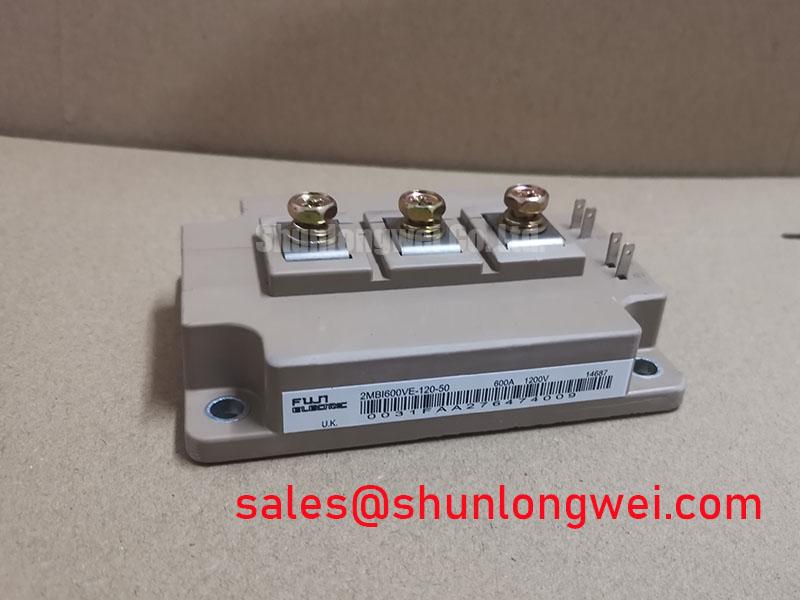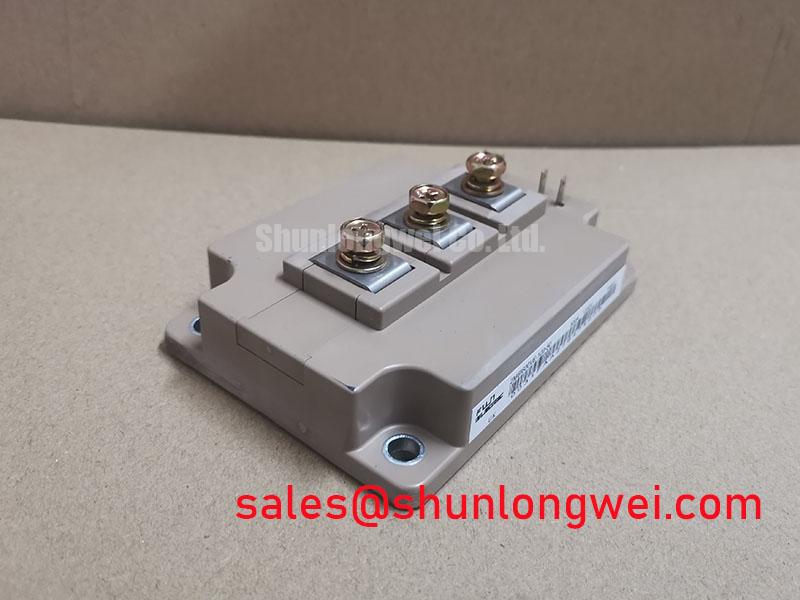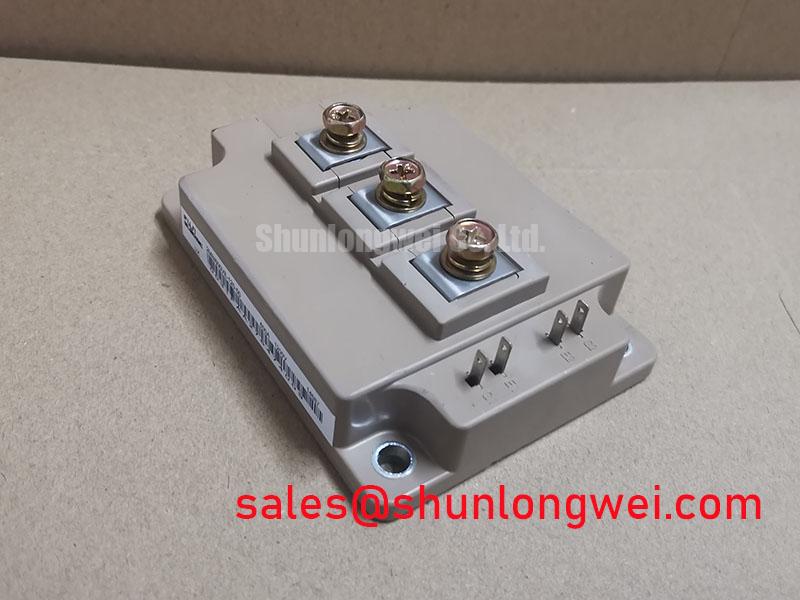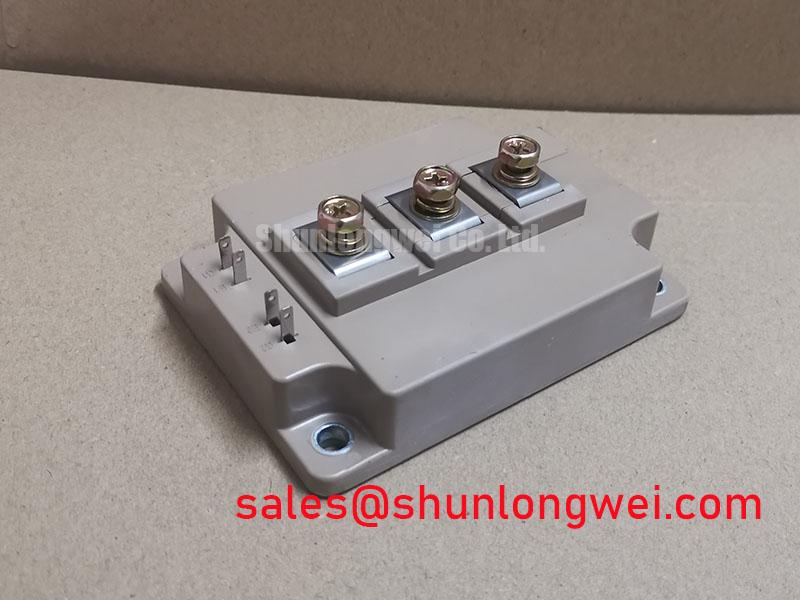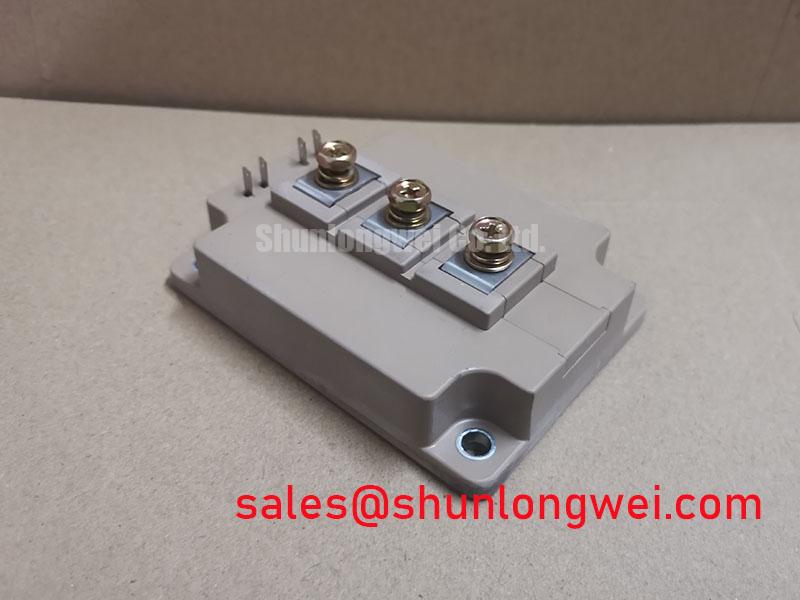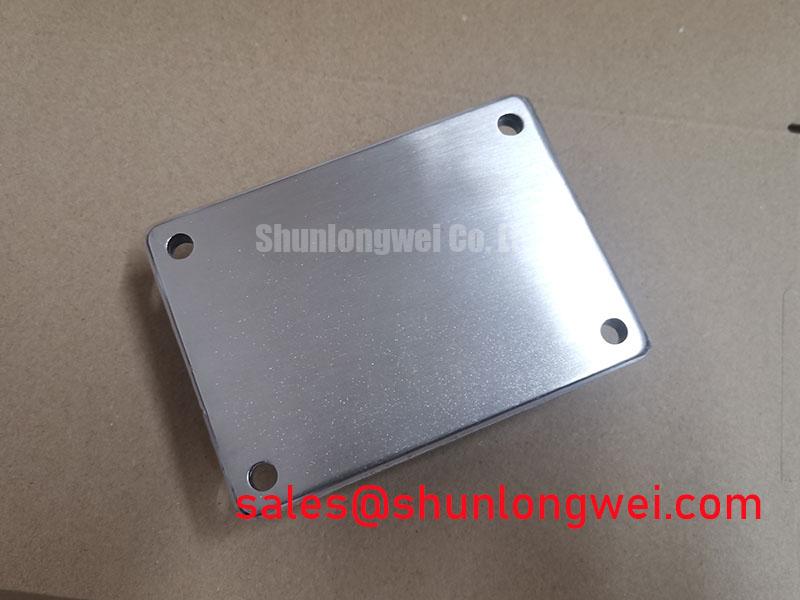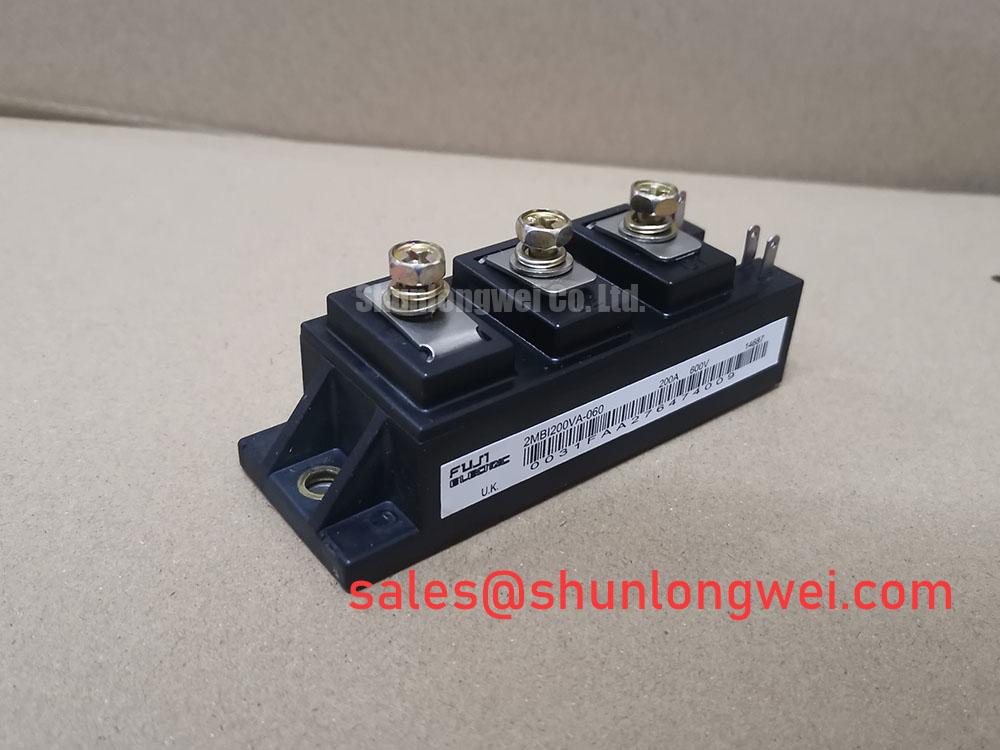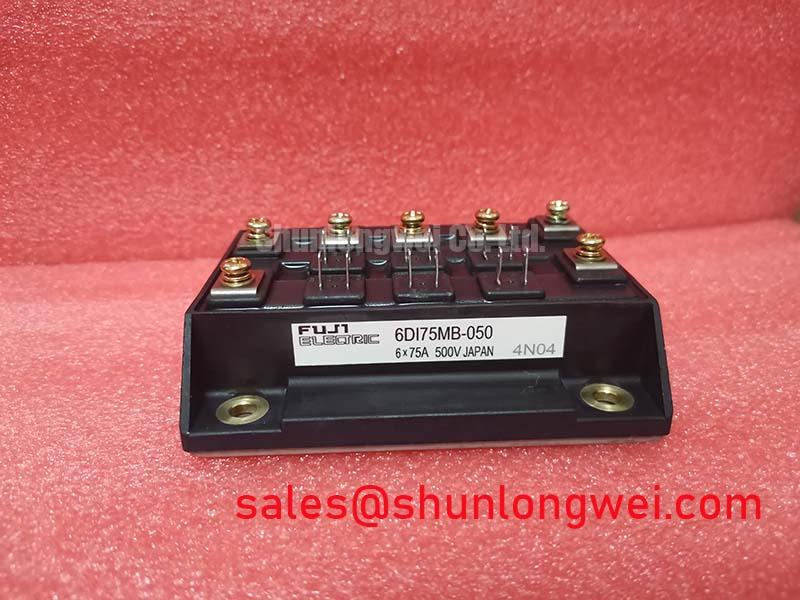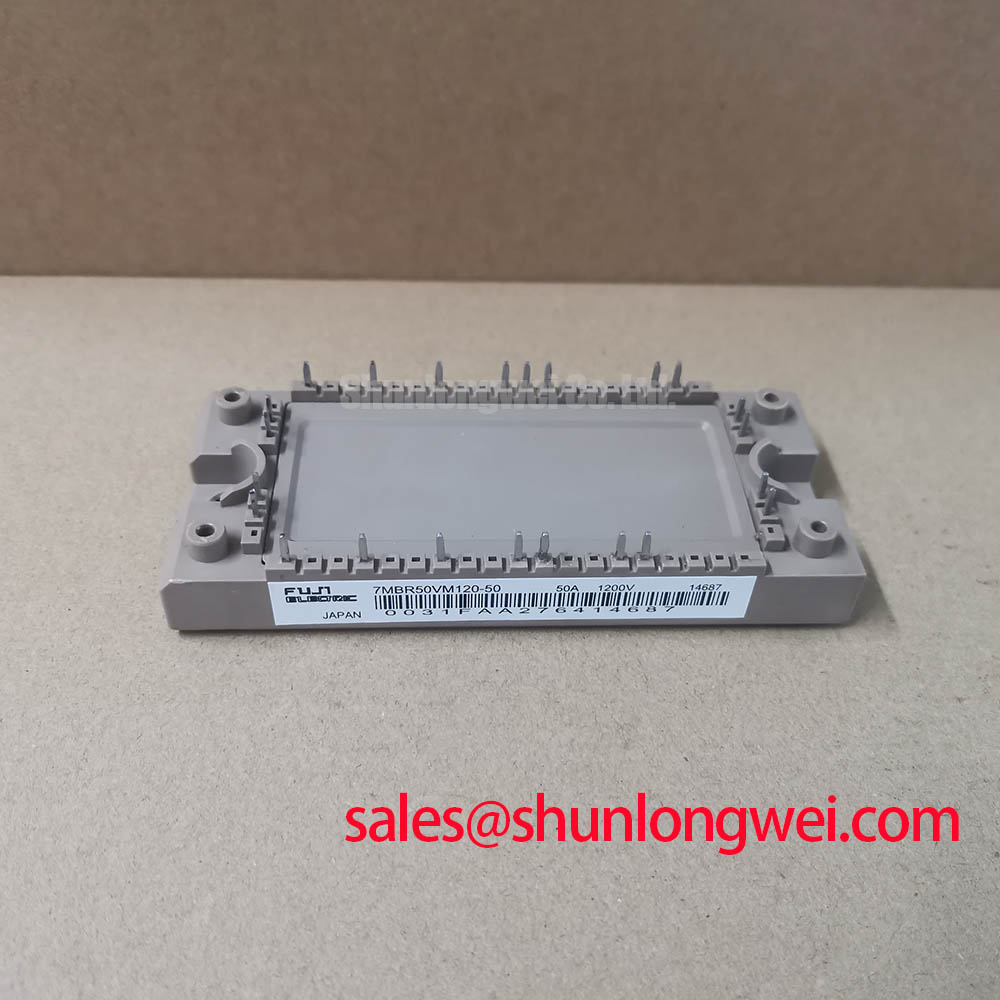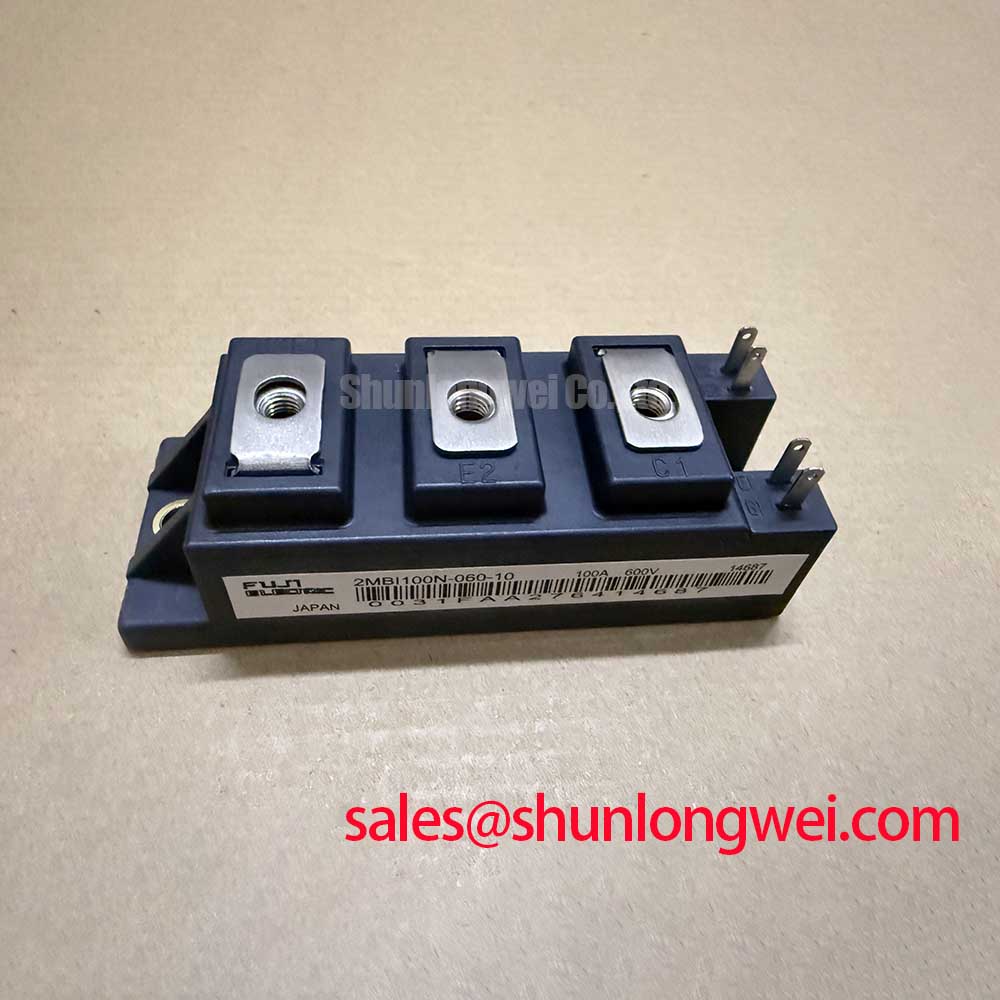Content last revised on November 21, 2025
2MBI600VE-120-50 | 1200V 600A Dual IGBT Module
Engineering High-Current Power Systems with Fuji Electric's 6th Gen V-Series IGBT
A Strategic Look at Conduction Efficiency and Thermal Performance
The 2MBI600VE-120-50 from Fuji Electric is a 6th generation V-Series dual IGBT module engineered to deliver high efficiency and robust thermal performance in demanding power conversion systems. With core specifications of 1200V | 600A | VCE(sat) of 2.40V (typ. at 125°C), this module provides a foundation for high-reliability designs. Its key engineering benefits include significantly reduced conduction losses and excellent thermal stability. This module directly addresses the challenge of balancing performance and thermal management in high-power inverters by leveraging a low saturation voltage. For industrial drive applications prioritizing efficiency and thermal margin under heavy loads, the 2MBI600VE-120-50 offers a precisely optimized solution.
Key Parameter Overview
Decoding the Electrical and Thermal Specs for High-Current Inverters
The technical specifications of the 2MBI600VE-120-50 are architected for robust performance in high-power applications. The module's parameters highlight its capacity for efficient power handling and stable operation at elevated temperatures.
| Parameter | Symbol | Condition | Value |
|---|---|---|---|
| Collector-Emitter Voltage | VCES | - | 1200V |
| Continuous Collector Current | IC | TC=125°C | 600A |
| Collector-Emitter Saturation Voltage | VCE(sat) | IC=600A, VGE=15V, Tj=125°C | 2.40V (typ.) |
| Maximum Operating Junction Temperature | Tj(op) max | - | 150°C |
| Thermal Resistance (Junction-to-Case) | Rth(j-c) | IGBT per device | 0.031 °C/W (max) |
| Turn-on Time | ton | IC=600A, Tj=150°C | 0.60 µs (typ.) |
| Turn-off Time | toff | IC=600A, Tj=150°C | 0.80 µs (typ.) |
Download the 2MBI600VE-120-50 datasheet for detailed specifications and performance curves.
Application Scenarios & Value
System-Level Advantages in Industrial Motor Drives and Power Conversion
The 2MBI600VE-120-50 is optimized for high-power, high-reliability applications where operational efficiency is a primary design driver. Its characteristics make it a strong candidate for systems requiring precise control over large electrical loads.
A primary application is in industrial Variable Frequency Drives (VFDs) used to control large motors in manufacturing, HVAC, and pumping stations. In a VFD, the IGBT's conduction losses, dictated by VCE(sat), are a major source of waste heat. The 2MBI600VE-120-50's typical VCE(sat) of 2.40V at a full 600A load and 125°C operating temperature is critical. This parameter directly translates to lower power dissipation, allowing engineers to design more compact systems with smaller, less costly heatsinks. What is the main benefit of a lower VCE(sat)? It enables higher system efficiency and reduces thermal stress, enhancing the VFD's long-term reliability.
The module's robust thermal pathway, indicated by a low thermal resistance (Rth(j-c)) of 0.031 °C/W, ensures that the heat generated during switching and conduction is efficiently transferred away from the IGBT junction. This is analogous to a wider, clearer highway allowing more traffic (heat) to flow away smoothly, preventing damaging backups (temperature spikes). This thermal efficiency is crucial in high-power applications like large-scale solar inverters and Uninterruptible Power Supplies (UPS), where sustained, high-current operation is standard. For systems requiring a lower current rating but similar voltage characteristics, the related 2MBI450VE-120-50 can be considered.
Frequently Asked Questions (FAQ)
What is the primary significance of this module being part of Fuji Electric's V-Series?
The V-Series, or 6th generation, signifies the use of advanced trench-gate and field-stop IGBT technology. For an engineer, this translates into an optimized trade-off between switching speed and conduction loss (VCE(sat)), leading to higher overall inverter efficiency compared to older generation modules.
How does the maximum operating junction temperature of 150°C impact system design?
A high operating temperature of 150°C provides a significant thermal margin. This allows the module to operate reliably in environments with high ambient temperatures or under temporary overload conditions without immediate derating, which enhances the ruggedness and reliability of the end-application, such as a wind power converter or industrial motor drive.
What does the low Rth(j-c) value of 0.031 °C/W imply for thermal management?
This low thermal resistance value indicates a highly effective thermal path from the silicon chip to the module's case. It allows for more efficient heat extraction, which is critical at 600A. In practical terms, it enables the use of smaller heatsinks, increases power density, and ultimately improves the reliability and lifetime of the power system by keeping the semiconductor junction cooler. Learn more about unlocking IGBT thermal performance through effective management.
Technical Deep Dive
Analyzing the Impact of VCE(sat) on Overall System Efficiency
The Collector-Emitter Saturation Voltage (VCE(sat)) is arguably one of the most critical parameters for a high-current module like the 2MBI600VE-120-50. At 600A, even small variations in this voltage have a substantial impact on power loss. The module's typical VCE(sat) of 2.40V at its operational temperature of 125°C is a key performance indicator. Conduction loss can be calculated as P_loss = VCE(sat) * IC. For this module, at full load, this equates to approximately 1440 watts of heat that must be managed per IGBT.
Think of VCE(sat) as the "toll" the current must pay to pass through the switch. A lower toll means less energy is wasted. The V-Series technology is specifically designed to minimize this toll, even at high current densities and temperatures. This focus on reducing conduction losses is vital for applications like EV charging stations and grid-tied inverters, where every percentage point of efficiency affects operating costs and return on investment. By minimizing this fundamental loss, the 2MBI600VE-120-50 enables designers to meet stringent efficiency targets, such as those required by modern energy standards, while simplifying the thermal design. For a deeper understanding of IGBT selection, explore this strategic guide to IGBT module selection.
Strategic Outlook
In an industrial landscape driven by demands for higher power density and greater energy efficiency, component selection is paramount. The 2MBI600VE-120-50 addresses these trends directly by providing a high-current switching capability within a standard package, underpinned by 6th generation technology that minimizes thermal overhead. For engineering teams developing next-generation power converters, motor drives, and renewable energy systems, this module offers a proven and reliable platform to achieve performance targets while managing thermal constraints effectively.

